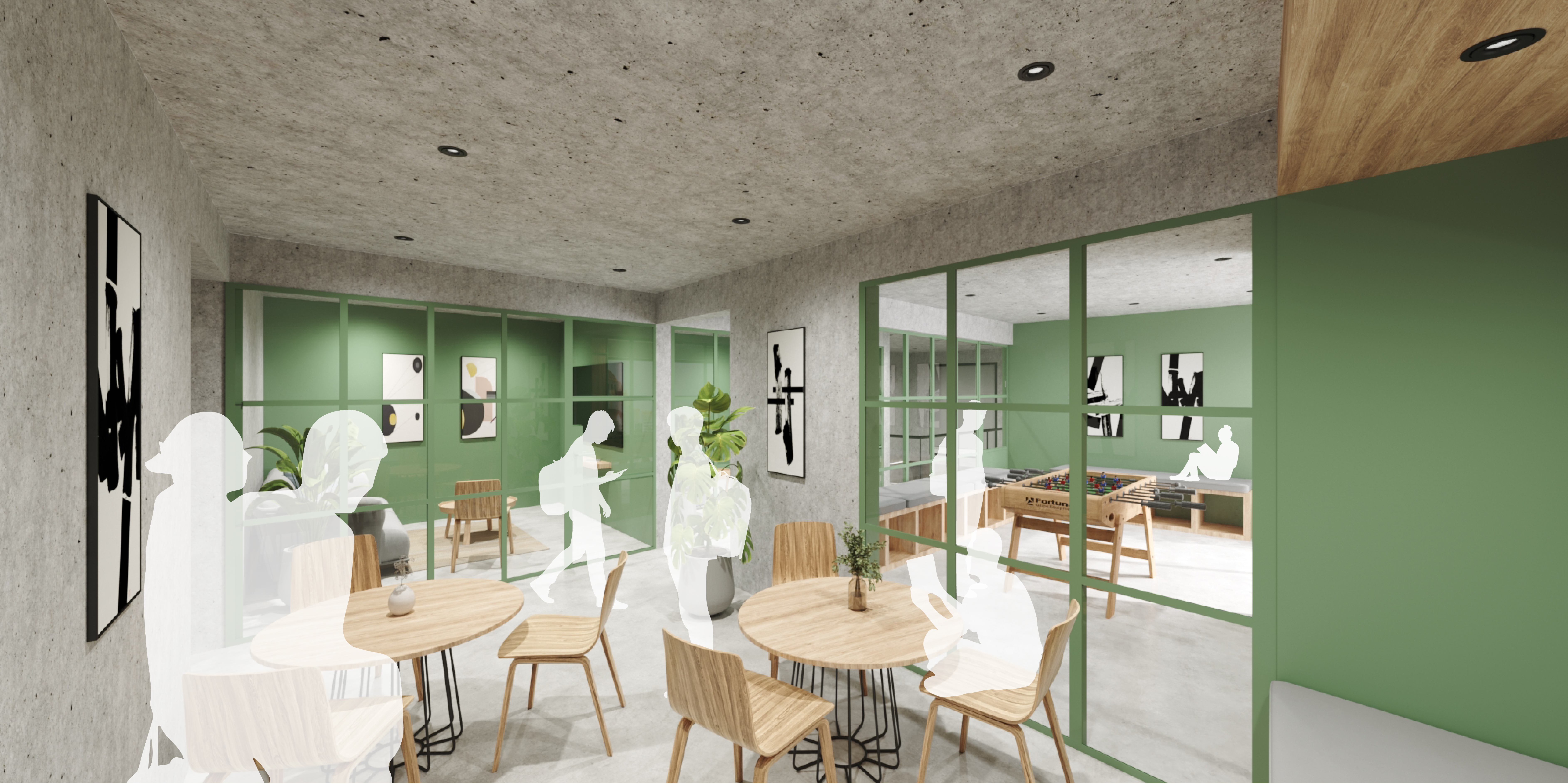What CoLiving regulation in Mexico City looks like
CoLiving regulation is key to addressing the lack of affordable housing and promoting sustainable urban growth. This requires government commitment to generate measures that effectively incentivize its construction.
Influencing land prices and the need for urban development
The price of land in Mexico City is indirectly determined by the development potential and accessibility to services in a given area. As a result, places that are more likely to be densified and have greater access to services experience more significant urban and real estate growth.
In turn, it is the government that determines land uses and indirectly controls its potential and also its price. Faced with the impossibility of satisfying the total demand for social housing, in the year 2000, Rule 26 was passed with the objective of promoting the construction of affordable housing in the four central municipalities through the participation of the private sector.
By building a housing development that complied with the specific characteristics established by law, with a sale price of less than one million pesos, real estate developers had the option of building two additional floors as an incentive.
However, abuses committed by such actors in the real estate sector led to the suspension of the rule in August 2013. Since then, no law or program has been implemented that favors developers or actually incentivizes the development of affordable housing.
This has an impact on the 272,000 housing deficit reported by CONAVI, as well as the more than 70,000 that are added year after year.
What are the Housing Regulations and their Current Limitations
Currently, the Mexican standard establishes that a home must have specific spaces as stipulated in the Mexico City Building Regulations. These include the kitchen, living room, dining room, bedrooms, bathroom, among others.
Until 2017, a dwelling was required to have a parking space, regardless of whether the residents owned a vehicle or not. This obligation resulted in an excess of square meters, which translated into spaces that users probably did not demand or use.
Unfortunately, the regulations have shown little evolution in response to real user demand, thus limiting the implementation of new schemes that meet current needs.
Challenges in shared housing and Coliving regulations in Mexico City
In Mexico City (CDMX), the supply of affordable shared housing is limited, leaving residents with options such as renting rooms, cohabitation with roomies or inadequate adaptations of the CoLiving model. This scenario is exacerbated by the lack of coherent and logical regulations to facilitate the development of this type of construction in the city.
The absence of clear regulations also hinders the establishment of affordable housing. The current Mexican standard does not contemplate any specific figure that addresses the cohabitation system itself.
However, since there is no explicit prohibition on the rental of individual rooms in shared living spaces, most co-housing in Mexico City operates under this modality.
Almost all of the housing built under the CoLiving scheme in the city has been created in existing buildings, thus avoiding the need to obtain new permits. Most of them are informal, operating as a dwelling house or under the use of a hotel or guesthouse. This encourages that most of them do not meet the basic requirements of habitability nor have the necessary spaces to foster true community living, i.e., they lack the true purpose of a CoLiving.
In addition, there are other tangential regulations that affect the sector. The Ley de Establecimientos Mercantiles, in its section on lodging, requires that rooms be separated by walls, gates or partitions, and stipulates that prices must be fixed per day, without the possibility of monthly contracts.
As for land use permits, there are currently no specific restrictions on the rental of individual rooms, unlike in other countries. Although land use charters establish minimums for premises totaling 22 m2, there are no generalized requirements. On the other hand, in the sections dedicated to leasing in the Federal Civil Code, it is established that any property may be leased; however, partial leases of a single property are not specifically regulated, and it is established that rental contracts must not exceed ten years or be less than one year.
Regulate CoLiving for sustainable urban growth
Implementing public policies that regulate CoLiving could be the ultimate solution to address many of the challenges of modern urban living. From affordable housing in urban environments, to access to a dignified old age, combating social isolation and deteriorating public health, reducing commuting times and investing in public transportation, as well as encouraging a policy of controlled, low-impact densification.
CoLiving emerged organically as a response to the shortage of social housing. However, governments have not yet embraced this form of housing through regulations and incentives.
Incorporating CoLiving into the options that encourage housing development by city governments would promote quality standards, regulations and certifications that endorse it as safe and quality housing.
Despite the lack of specific designs that guarantee the safety and quality of life of residents, CoLiving is already a reality in Mexico. The CoLiving industry is experiencing an annual growth of more than 50%, with an underutilized potential for the development of urban centers.
Betting on densification and co-housing schemes would be a long-term solution to the great lack of affordable housing in cities, in addition to being a way to curb the excessive growth of land costs and the expansion of the urban sprawl.
